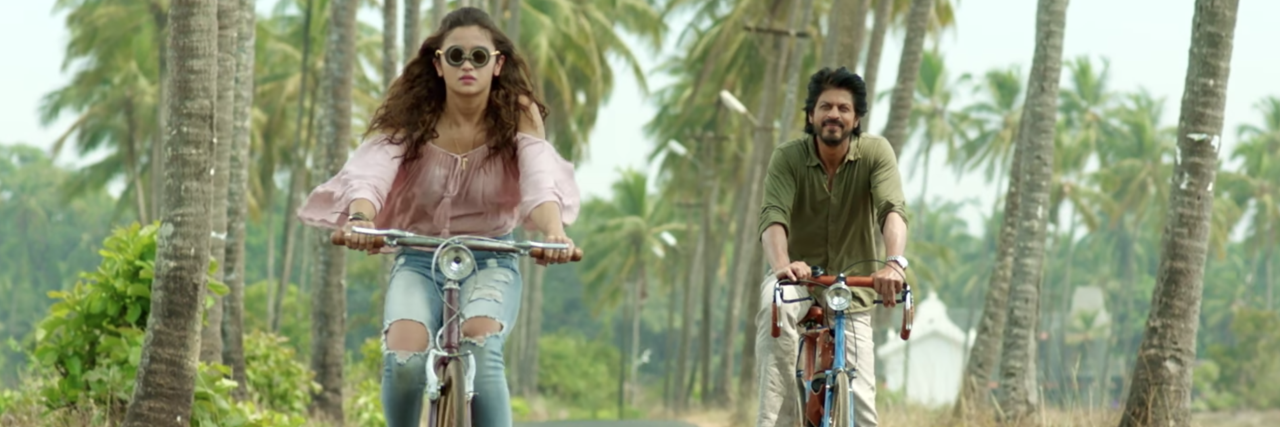How This Bollywood Movie Is Challenging Mental Health Stigma in India
“Sometimes we choose a difficult path only because we feel that to attain important things we need to choose a difficult path. We think that it’s important to punish ourselves, but why can’t we choose a simple path? What’s wrong with that? Especially when we are not ready to face that difficult path.”
Growing up, I always watched Shah Rukh Khan‘s (known as SRK) movies if I had to watch Hindi films. I watched them by choice, from his romance movies to being a superhero (His Rahul, Raj and Aman days to being “Ra One”). I never really saw him more than the “Badshah of Bollywood,” but watching him in 2016 drama “Dear Zindagi” changed my perspective of him so much.
As for his costar Alia Bhatt, I have always loved her movies. From her debut in “Student of the Year” to her current films, she has always made movies that broke Indian stereotypes and taboos, such as in “2 States” (inter-community marriage), “Udta Punjab” (drug abuse), “Highway” (child abuse) and finally “Dear Zindagi” (mental health). It’s refreshing to see a young woman in Bollywood take up movies about current issues and not being afraid whether they’re a flop or not.
So, here’s the story. When “Dear Zindagi” first came out, I was so tempted to watch it (because it starred Alia and SRK) but never found the time. About a year later, after dinner with my whole family, we settled in for a movie night. I decided, “let’s watch ‘Dear Zindagi.’”
To be honest, I get so tempted to know more about a movie that I will read reviews and the plot off Wikipedia, but I didn’t for “Dear Zindagi” and I just went with the flow — I actually wanted to watch it because of the title (literally “Dear Life”). I didn’t know it was about mental health at all.
But, I can tell you one thing for sure; by the end of the movie, I had tears streaming down my face and I was sobbing uncontrollably. Wanna know why I was crying? Because the movie basically conveyed everything I’ve ever held onto. I finally found a Bollywood movie that wasn’t about romance and breaking into a 10-minute song, with the hero and heroine at the top of a mountain. It was finally a movie that spoke about important issues.
Mental health is something I’ve always struggled with, ever since I was young. I didn’t know how to handle it and it’s a taboo, especially in an Indian household, where they all say, “it’s all in your head, get over it.” I cried after the movie because they finally showed it’s OK to go to therapy, it’s OK to not be OK and it’s OK to ask for help.
In “Dear Zindagi,” we see Kaira battling with her depression, how it affects her life and how it affects all her relationships. Whether a romantic relationship or a relationship with her family, her relationships were failing and she was struggling. She finally meets Dr. Jehangir Khan and seeks therapy from him.
Dear Zindagi didn’t receive as much acknowledgement as it should have, but I feel it should have been the focus of the Indian film industry in 2016. It brought two of the most powerful people in the industry together to create such a wonderful film.
SRK taking on the role of Dr. Jehangir Khan was so important to me, both as a person who lives with a mental illness and a huge fan of him since childhood. To see his face validating my mental health, saying it is as real as any other physical illness, and it isn’t any less because it’s in your mind, is an indescribable feeling. For that, I thank him.
To live in an era when Bollywood movies aren’t about swapping brides and falling madly in love, and to see them focus on much important issue, is so vital.
Dealing with mental health in a desi household isn’t easy, but by watching “Dear Zindagi,” it sort of gives you a perspective of how dealing with mental health alone is hard; when your family isn’t accepting or is in denial of your condition, it’s worse. For me, it’s definitely a must-watch movie with your family, especially with the older generation, because it can help them understand mental health or at least helps us make them validate our condition.
So, if you haven’t watched this movie, it’s an absolute must-watch. Just have a box of tissues on standby.
Thanusha Ravi. x
Follow this journey on the author’s blog.
Image via YouTube.

